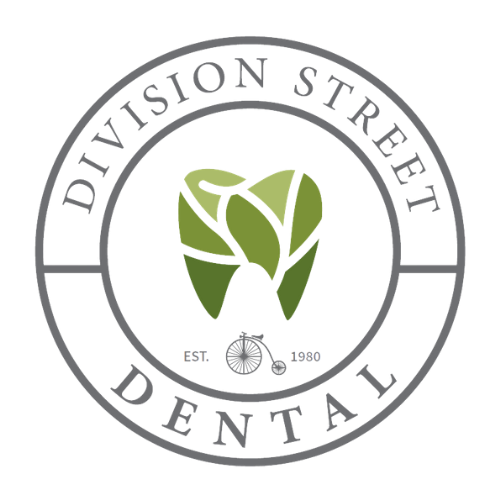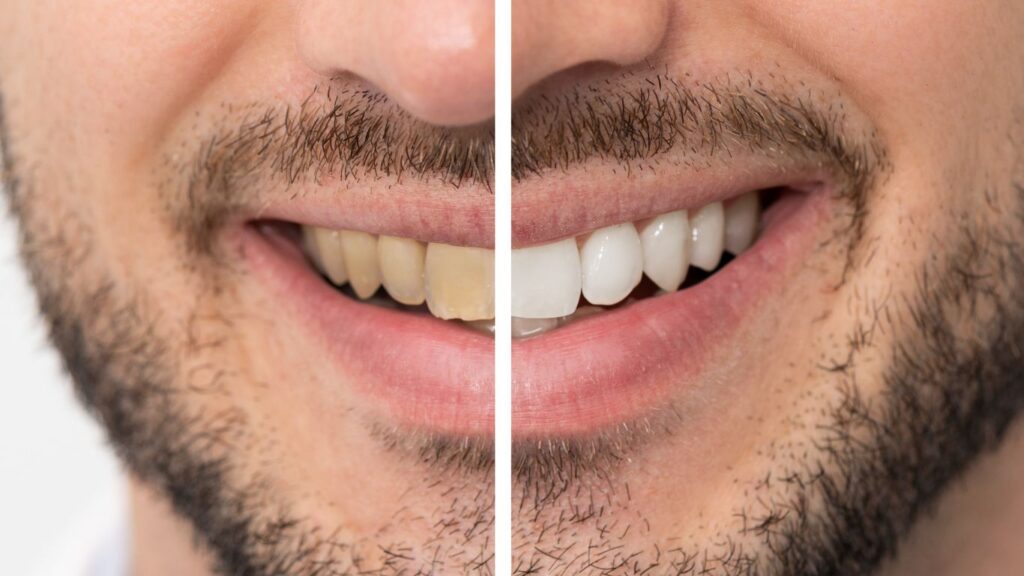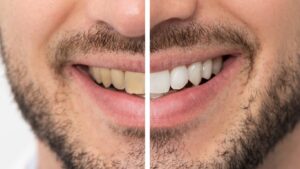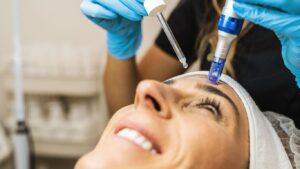Laser Dentistry’s Growth in Portland
Over the last ten years, laser dentistry has become increasingly popular in Portland. Early doubts due to uncertain results in the 1990s have given way to widespread acceptance as the technology has advanced.
Now considered a key part of dental care in Portland, laser dentistry offers various treatments with benefits like less pain and faster recovery. It has moved from being a niche service to a standard offering in many Portland dental clinics, endorsed by dental professionals and favored by patients.
Let’s take a deeper dive reading our laser dental care guide that covers the majority of topics. If you wish to speak with us to learn more, feel free to contact us during business hours.
Key Laser Dental Procedures in Portland
Laser dentistry in Portland provides patients with a wide array of dental treatments and procedures to improve oral health and appearance. Some of the most common and beneficial laser dental procedures include:
Gum Treatments
Lasers can be used for gum contouring and reshaping to correct “gummy smiles” and uneven gum lines. Lasers gently remove excess gum tissue for a more aesthetically pleasing smile. Laser treatments can also be used for gum disease by removing infected tissue and killing bacteria in gum pockets. This helps treat and prevent periodontitis.
Periodontal Cleaning
Lasers allow dentists to thoroughly clean and disinfect the tiny spaces between the teeth and gums. This results in a deeper, more effective cleaning than traditional dental tools can provide. Lasers kill harmful bacteria that lead to plaque buildup and periodontal disease.
Treating Tooth Decay
Lasers can remove decayed areas of teeth quickly and precisely. Unlike dental drills, lasers don’t cause vibration or heat that can damage healthy tooth structure. Lasers target only the decayed sections that need to be removed. This conserves more natural tooth and causes less trauma.
Cosmetic Dentistry
Many cosmetic dental procedures can be performed with lasers for better aesthetics. Laser teeth whitening is a popular treatment. Veneers and crowns can be bonded to teeth with laser precision. Lasers can also reshape teeth and close small gaps for a perfect smile.
Comparing Traditional and Laser Dentistry
While traditional dentistry in Portland boasts time-tested methods passed down through generations of dental professionals, laser dentistry offers some key advantages:
- Minimal Invasiveness: Laser technology allows dentists to be much more precise and focused in treatments. This means lasers can target problem areas without disturbing healthy surrounding tissue. Traditional dental drills are far more invasive and disruptive.
- Reduced Discomfort: The pinpoint accuracy of lasers results in treatments that are much gentler on patients. Without the grinding vibration and pressure of drills, laser dentistry procedures involve significantly less discomfort and trauma.
- Less Need for Anesthesia: Due to the reduced vibration and pressure, many laser treatments can be performed with only a topical anesthetic or no anesthesia at all. This allows patients to avoid the needles and side effects of general anesthesia.
- Instant Coagulation: Lasers can immediately coagulate small blood vessels, meaning almost no bleeding during or after procedures. This improves visibility and shortens healing time.
- Quicker Procedures: Lasers work faster than traditional rotary instruments. Combined with less need for anesthesia and stitching, appointments are shorter with laser dentistry.
So while drills get the job done, lasers represent a major upgrade in patient experience – something the top dental practices in Portland have embraced. The future is bright for laser dentistry in this city!
How Laser Dentistry Improves Oral Health in Portland
Laser dentistry provides significant benefits for oral health, making it an appealing choice for dental care in Portland. With precise and non-invasive treatments, laser dentistry enhances oral health in the following ways:
- Effectively treating gum disease: The lasers target and eliminate harmful oral bacteria that cause gum disease. This allows dentists to thoroughly treat periodontitis and gingivitis without hurting the surrounding gum tissue.
- Minimizing trauma to oral tissues: Unlike dental drills, lasers don’t damage or stress delicate oral tissues. This results in less bleeding, swelling, and discomfort during and after procedures.
- Promoting faster healing: Laser energy stimulates regeneration of gum tissue, accelerating the healing process. Patients experience quicker recovery times after treatments.
- Treating tooth sensitivity: Lasers can seal microscopic tubules in teeth that cause sensitivity to hot and cold. This provides lasting relief from sensitivity discomfort.
- Treating other conditions: Laser dentistry in Portland can also address issues like snoring, sleep apnea, canker sores, and tooth decay. The precision of lasers makes them effective for these targeted treatments.
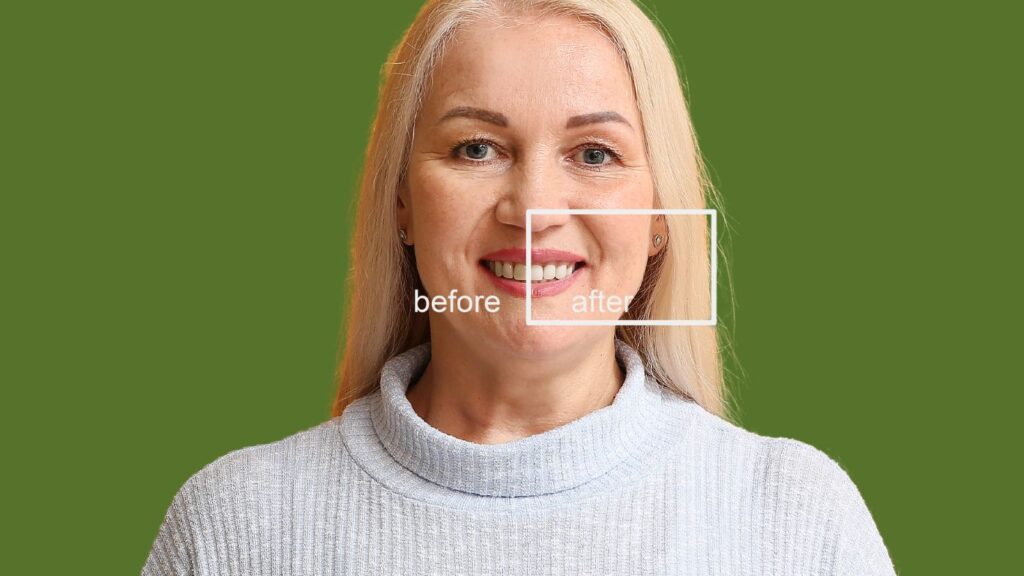
By avoiding invasive methods and stimulating natural healing, laser dentistry enables better clinical outcomes, shorter recovery, and improved oral health for patients in Portland. The unique advantages of laser treatments make them a popular modern choice for dental care.
Laser Dental Technology Explained
Dental lasers operate by emitting concentrated light energy, which interacts distinctly with different oral tissues. This section examines how lasers engage with both hard and soft tissues within the oral cavity.
Hard Tissue Applications
Lasers make contact with teeth or bone to execute tasks like decay removal, cavity preparation, or teeth whitening. In these applications, the laser’s light energy heats the water within hard tissues, enabling the meticulous removal or modification of tooth structure with high precision. The thermal effect on hard tissues, such as enamel and dentin, is exploited to achieve finely-tuned cuts and reshaping.
Soft Tissue Application
Lasers are adept for soft tissue procedures, including gum contouring or excision of diseased tissue in periodontal conditions. Here, the laser energy, absorbed by the water in soft tissues, induces controlled heating. This benefit extends to coagulating blood vessels to curtail bleeding and sterilizing the treatment area to ward off infection. The precision of lasers in excising inflamed gums minimizes trauma, promotes immediate blood vessel sealing, and encourages quicker healing.
The Precision of Laser Dentistry
The thermal interactions induced by lasers enable the delicate treatment of oral tissues, causing minimal collateral damage. The capacity of lasers to focus on very specific tissue areas renders them exceptionally useful in dental care, providing a balance of effectiveness and safety.
Types of Dental Lasers
Lasers used in dentistry fall into two main categories – hard-tissue lasers and soft-tissue lasers. These lasers operate at different wavelengths and have different clinical applications.
Hard Tissue Lasers
Hard tissue lasers, such as CO2 lasers and Er: YAG lasers, have wavelengths that are well-absorbed by hydroxyapatite, the mineral that makes up tooth enamel. This allows them to effectively ablate or cut through tooth structure. Hard tissue lasers are primarily used for:
- Cavity preparation
- Removing decay
- Shaping tooth structure before fillings or other restorations
These lasers can selectively remove diseased tooth structure while preserving healthy teeth around it. This minimizes the amount of drilling and anesthesia required.
Soft Tissue Lasers
Soft tissue lasers like Diode and Nd:YAG lasers penetrate well into soft tissues like gums. Their wavelengths are absorbed by pigments in the gums, cutting and coagulating soft tissues. Common uses include:
- Treating gum disease
- Removing inflamed gum tissues
- Exposing teeth for crowns
- Managing periodontal pockets
- Biopsies
Soft tissue lasers disinfect the area as they cut, seal lymph vessels to reduce swelling, and stimulate healing factors in tissue. This leads to less bleeding, pain, and faster healing compared to traditional scalpel surgery.
NightLase® Snoring Treatment
Division Street Dental in Portland now offers NightLase®, a state-of-the-art laser treatment designed to lessen or put an end to snoring. Using the advanced Fotona NightLase® technology, this non-surgical procedure targets the mouth and throat tissues that cause snoring.
The process is non-invasive with no recovery time. It works by directing laser energy to the soft palate and uvula, promoting collagen production, and firming up the tissue to reduce snoring. Continued treatments can improve these outcomes.
Many patients have noted better sleep and reduced snoring for both themselves and their partners. The procedure can also help alleviate mild sleep apnea symptoms.
For personalized care and to explore how NightLase® can aid in achieving uninterrupted sleep, reach out to Division Street Dental at (503) 774-3033.
Overview of Pediatric Laser Dentistry Benefits
Reduced Stress and Trauma
Laser dentistry offers a gentle alternative for children’s dental procedures, significantly reducing the fear and anxiety often associated with dental visits.
Avoidance of Traditional Drilling
Compared to traditional drilling, which may cause discomfort with its noise and vibration, lasers allow for a quieter and smoother experience. This can alleviate the intimidation and pain that children might feel.
Minimal Need for Anesthesia
With the precision of laser dentistry, many procedures can be performed without the need for numbing or general anesthesia, sparing children from the discomfort of injections.
Preservation of Tooth Structure
Lasers are highly accurate, which means there’s less likelihood of affecting healthy parts of the tooth during treatment, preserving more of the natural tooth structure.
Accelerated Healing
Laser treatments offer the benefit of sterilizing the area and sealing tissue, leading to quicker healing and the ability for children to resume normal activities, like eating and drinking, almost immediately after the procedure.
Less Post-Procedure Discomfort
With less need for drills and anesthesia, children experience fewer post-treatment effects such as residual numbness, which can be both uncomfortable and distressing.
Enhancing the Dental Experience for Children
The use of laser dentistry supports a more pleasant dental experience for children, contributing to a positive attitude towards dental health and encouraging regular dental visits.
Parental Peace of Mind
Parents can take comfort in knowing their child is receiving state-of-the-art care that minimizes discomfort and promotes a faster return to daily activities.
Caring for Teeth After Laser Treatments
Maintaining excellent oral hygiene and following your dentist’s post-op instructions are critical for proper healing and recovery after laser treatments. Here are some tips:
- Brush and floss regularly: Gentle brushing and flossing help prevent bacteria buildup and promote gum health after procedures. Use a soft-bristled brush and avoid vigorous scrubbing of treated areas.
- Rinse with prescribed mouthwash: Your dentist may recommend rinsing with a special mouthwash to keep areas clean. Avoid alcohol-based rinses which can dry out your mouth.
- Attend follow-up appointments: Stick to scheduled follow-up visits for monitoring, cleanings, and to ensure you’re healing properly. Report any unusual symptoms right away.
- Avoid certain foods temporarily: Steer clear of sharp, crunchy, or extremely hot/cold foods that could irritate treated areas. Stick to soft, lukewarm foods as recommended by your dentist.
- Stay hydrated: Drink plenty of water to keep your mouth moist and prevent irritation. Dehydration can slow the healing process.
- Take it easy: Give your body adequate rest to recover faster. Avoid vigorous exercise and activities that could dislodge blood clots.
- Don’t smoke: Refrain from smoking cigarettes or e-cigs, as these can delay healing and cause complications.
Following post-treatment guidelines helps you recover quickly and smoothly. Contact our office if you have any questions or concerns during the healing process.
Laser Dentistry: A Greener Choice
Laser dentistry offers a more eco-friendly approach to dental care by reducing waste and the use of disposable tools and materials. It cuts down on the need for anesthetics and minimizes aerosols and debris during procedures. Additionally, its minimally invasive nature means less medication and fewer resources are needed. Overall, laser dentistry is advancing towards an even smaller environmental footprint, making it an increasingly sustainable option in dental treatment.
Consult With Us Today
For those in Portland seeking a cutting-edge, patient-friendly approach to dental care, consider laser dentistry at Division Street Dental. Experience the benefits of precision, comfort, and rapid healing for yourself or your family members. Contact Division Street Dental at (503) 774-3033 to explore how laser dentistry can enhance your dental health and overall experience.
